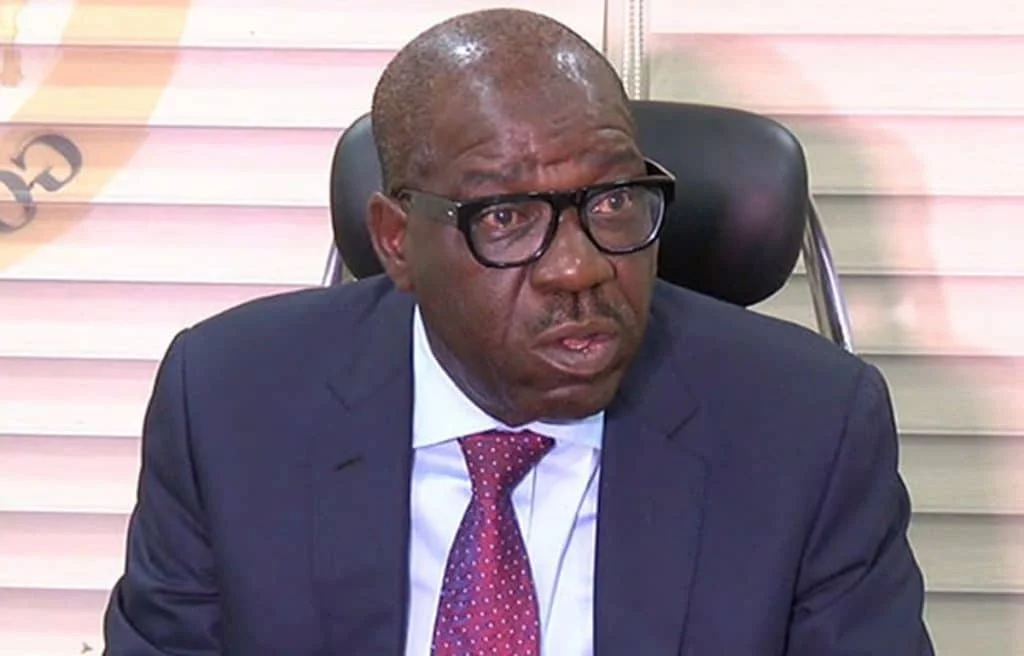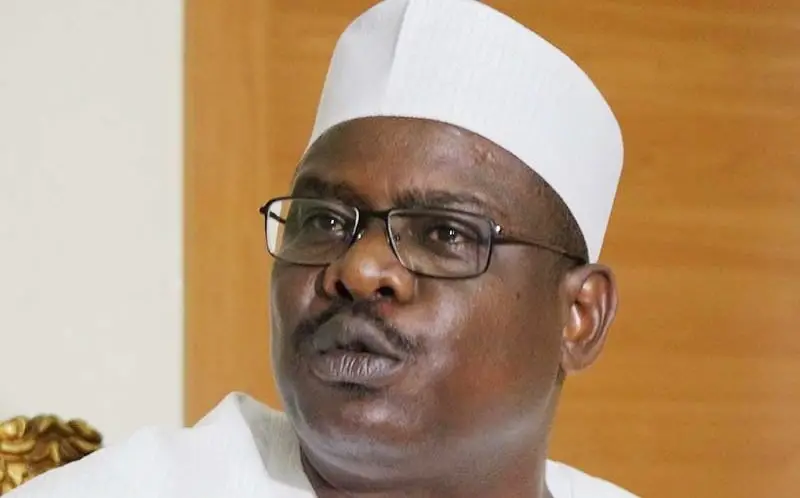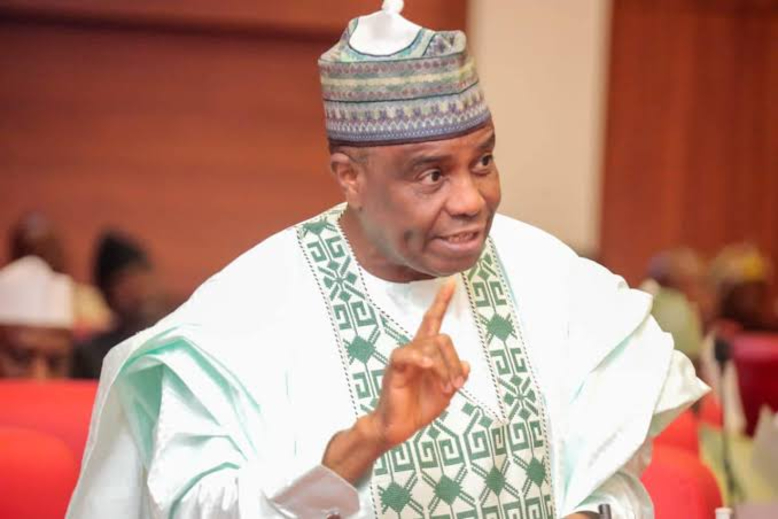News
[OPINION] Buhari: The Good, t The Bad, And The Terrible

Tunde Odesola
With tonnes of turmoil – the weight of Olumo Rock – pressing down on my soul, I sit at my desk and stare at my scroll, feather and inkwell, lost in thought. My mind is foggy and full of sorrow: the Olubadan is dead; the Awujale is dead; former President Muhammadu Buhari is dead. How are the mighty fallen!
In Nigeria, death is harvesting lilliputs and giants. The Earth sheds tears. The clouds stood still. The sun bolts its door because the land is sodden with grief. Is it not said that the ailment that afflicts the Chief Priest, Aboyade, afflicts all the initiates of Oya? Human tears fall for Olubadan Owolabi Olakulehin and Awujale Sikiru Adetona; crocodile tears fall for General Muhammadu Buhari, the biased grand patron of gun-shooting Miyetti Allah Herdsmen of Nigeria.
Twice, I put my feather to my scroll to pen tributes to the two-and-a-half departed souls. Twice, the quill of my feather broke. Now, I lift my voice to ye ancestors of our dear native land, though tribe and tongue may differ. I call on thee to stand by me in this third attempt to unmask hypocrisy, call a spade by its name, and stop professional mourners from wrapping jèbè in àkísà (rag) for Nigerians.
What is jèbè? I went to an elder who knows. Historian and Ifa priest, Professor Wande Abimbola, said, “Jèbè is menstrual flow.” Stunned, I said to him, “If I had a hundred years to decode the meaning of jèbè, I would never have been successful.” I thanked Baba Abimbola and came back to my feather and scroll.
The progenitors of this land, it is you I call unto! This is my third attempt at writing this piece; twice my quill has broken, probably broken by corrupt elements wrapping menstrual flow in rags and showing it off to Nigerians as a priceless gift, when it should have been buried in a shallow grave in Daura.
READ MORE FROM THE AUTHOR:OPINION: BAT Rejects Trump’s Amazing Offer
As I launch forward again to unfurl the turmoil in my mind and mourn the departed monarchs and the herdsman, I beseech thee to stand firmly by me as the ears stand firmly by the head. Pray, let my feather not break the third time because àrò méta kìí d’obè nù: the tripod doesn’t spill the soup.
The day the elephant breathes its last, knives and swords surge into the forest. The day a man dies, he becomes a graven image of admiration, ojo a ba ku la a dere, eyan o suwon laaye. Barefaced, Death stormed Oluyole in the morning of Monday, July 7, 2025, – Ojó Ajé, the Yoruba day of profit, and heaved the Olubadan of Ibadan, Oba Owolabi Olákùléhìn, on his shoulders, en route to òrun alákeji, the afterlife. Sadly, the weevil never lets the mouth munch mature kola: kokoro buruku o je ka je obi to gbo. Oba Olákùléhìn was enthroned at 89; he joined his ancestors at 90.
Amid a torrent of tears, Death left Ibadan for Ijebu-Ode and headed straight to the palace of Ajagbalura, where, without knocking or invitation, he barged in and met the Ogbagba Agbotewole seated in splendour. Oba Adetona looked Death in the eye, unafraid and unflinching. Death nodded; it was time to go. Adetona rose and struck his sceptre on the ground, gbam! He was never a coward. He once looked into the barrel of the smoking gun held by Sani Abacha. That was the era when serving military generals peed in their pants, prostrating at the feet of a mistrained and manipulative maniac called Major HARMzat. In his autobiography, Awujale, Adetona called the Ebora Owu Judas to his face in Aso Rock – when the Ebora Owu was allegedly scheming for a third term.
Like the immediate past Oba of Lagos, Kabiyesi Adeyinka Oyekan, nicknamed Baba Kola, who smoked cigarettes and lived for 91 years, Adetona too smoked and lived for 91 years. Does their longevity mean royal lungs are immune to lung cancer, heart diseases, emphysema and other cigarette-smoking induced diseases? Or is it a case of àyànmò – destiny? I’ll advise you not to smoke if you have never started, and try to quit if you have already started. Quitting cigarettes was the biggest personal victory of self-control over self-indulgence I ever achieved.
The late Oyekan and Adetona were honourable obas on whose heads crowns sat with dignity. Oyekan was a pharmacist who studied at Edinburgh. Adetona was an accountant who studied in the UK. Neither of them was ever videoed rolling ‘igbo’ with a ‘risler’, like my ex-friend, Emir Adewale Abdulrasheed.
MORE FROM THE AUTHOR:OPINION: The Owner Of Èkó And His Dogs
The same day death knocked on the Ijebu-Ode palace door, it crept behind a door in one of the biggest and most exclusive private hospitals in London. Inside this super-expensive hospital, wired to machines, lay General Muhammadu Buhari, who left decrepit public hospitals back at home to enjoy first-class medical treatment in London.
A long time ago, while drinking from the fountain of knowledge of the Orangun of Oke-Ila, Oba Adedokun Abolarin, the monarch dropped a nugget of historical wisdom, which I have kept in my left hand ever since. “Tunde,” he said. “Kabiyesi,” I responded. “Do you know which universities the children of Nigeria’s leaders at independence went to? Go and find out.”
My findings were shocking. From the West to the East, the North and the South-South, I discovered that the children of premiers, ministers, state governors, federal parliamentarians, state legislators and top civil servants, schooled abroad when Nigeria had the University College, London, right in Ibadan. Nigeria had been prodigal since birth.
Before independence in 1960, Nigeria had, in the heart of Ibadan, the College of the University of London, established in 1948. It later became the University of Ibadan in 1962, just as the University of Nigeria was established in 1955, while the University of Ife (now Obafemi Awolowo University), the University of Lagos and the Ahmadu Bello University were all established in 1962. That was when there was a country.
Unfortunately, Nigerian leaders before and after independence felt that the country they professed to be building was inferior to the countries of their slave masters. The sense of greed, elitism, status symbol and inferiority complex later metastasised into corruption in governance as economic fortunes dwindled and the naira lost its power. But our leaders have tasted the forbidden fruit; they can’t do without the apple.
In 1962, at the age of 19, Buhari was recruited into the Nigerian Army. By January 1963, at the age of 20, he was commissioned a second lieutenant of the Nigerian Army. Today, it takes five years to become a second lieutenant in the Nigerian Army. From the outset of his adult life, Buhari lived on favour and avowed allegiance to Fulani oligarchy and Nigeria’s (dis)unity.
On December 31, 1983, Buhari toppled the democratically elected government of Alhaji Shehu Shagari and promised to turn Nigeria into heaven on earth. He bore his ethnic fangs on the night of the coup. Shagari was put under house arrest where all amenities were provided for him while Dr Alex Ekweueme, Shagari’s deputy, was clamped in prison. Shagari, a fellow Fulani, was unscathed while the Buhari junta sentenced politicians from other regions of the country to jail terms, ranging from 100 years to 200 years or more.
MORE FROM THE AUTHOR:OPINION: Fufeyin The Compound Food
That was when Nigerians should have seen Buhari as a snake in the grass, but we were swayed by his gaunt looks, and felt his flat stomach was a symbol of honesty and integrity, not realising that no matter the amount of blood the mosquito sucks, its neck, legs and proboscis will still be skinny.
With a horse tail, the duplicitous Buhari and his deputy, Tunde Idiagbon, whipped every Nigerian into the line of War Against Indiscipline, ordering public servants not to take their children to hajj, but the underage son of Idiagbon, Kunle, went to hajj with Idiagbon. The secret was let out of the bag when another terrible military leader, Ibrahim Babangida, overthrew the Buhari-Idiagbon regime in 1985 while Idiagbon was away with his son on hajj.
A certain kleptomania called Sani Abacha found his way into power in 1998 and gave the plum Petroleum Task (Fraud) Fund to Buhari to oversee. Despite foreign countries’ remittance of billions of dollars stashed away by Abacha while he ruined Nigeria, Angel Buhari opened his mouth, ‘gbagada’, to say Abacha wasn’t corrupt.
Buhari later became a civilian president, and there was COVID. In the global lockdown, however, Abba Kyari, Buhari’s Chief of Staff, died, and the stringent law against mass gathering was violated by Buhari’s government for Kyari, as government officials trooped out en masse to bury Kyari. Meanwhile, Nigerian Nollywood star Funke Akindele was prosecuted and found guilty of violating the law against mass gathering.
Talk no go ever finish for Buhari head. During a nationwide fuel scarcity, Yusuff, the son of Buhari, fed the massive tank of his multi-million naira motorbike to the brim, and zoom, he went off on a personal grand prix race on the roads of Abuja and crashed like Humpty Dumpty. That was when Nigerians knew Mr WAI could allow his son to own many motorbikes and roam Abuja without adhering to the speed limit. If Yusuff had rammed into a motorist and was clearly at fault, Buhari would most likely have personally skinned the motorist alive.
It was the same Mr Integrity who opened the presidential hangar to his daughter, Hanan, to fly presidential jets to photoshoots and do personal chores. Meanwhile, Buhari had warned Nigerians, “If we do not kill corruption, corruption will kill Nigeria”, yet failed to keep his promise of asset declaration, which he made during campaigns.
I have read syrupy tributes by various Nigerian leaders and even the opposition Peoples Democratic Party. In a statement, the PDP said Buhari dedicated his life to service, describing him as a ‘disciplined leader’. This is the same PDP that had described Buhari as brain-dead.
Goodnight, Muhammadu Buhari: Nigeria’s greatest leader.
—-//—-
Email: tundeodes2003@yahoo.com
Facebook: @Tunde Odesola
X: @Tunde_Odesola
News
Ex-Edo Gov Obaseki Reacts As His Cousin Is Beaten, Stripped

The immediate past governor of Edo State, Godwin Obaseki, has reacted to the attack on Don Pedro Obaseki, the Chief Executive Officer of Osamudia Farms.
Don Pedro Obaseki, a cousin to the immediate past governor was attacked at Uwa Primary School where he went to play football.
In a viral video, Pedro Obaseki is seen kneeling at the Oba of Benin Palace gate, before he was dragged into the palace where he was asked to crawl before some chief walked up to the scene and rescued him.
Reacting, the ex-Edo governor described the act as a “grave violation of fundamental human rights and a reckless disregard for the rule of law.”
READ ALSO: Obaseki Beaten, Stripped In Edo
Obaseki, said: “I call on security agencies to immediately investigate this matter thoroughly and transparently, identify those responsible for this barbaric act and ensure they are held accountable in accordance with the law.
“A situation where thugs and non-state actors appear to freely take the law into their own hands on behalf of high-profile individuals and those in positions of authority can only result in one outcome, a degeneration into a state of anarchy, which will do no one no good.”
He further charged, “I urge human rights organizations, civil society groups, and all well-meaning Nigerians to lend their voices and speak out firmly against this injustice and gross violation of human rights.”
News
New Tax Laws: Suspend January 2026 Implementation — Senator Ndume Tells Tinubu

Former Senate Leader, Ali Ndume has appealed to President Bola Ahmed Tinubu to suspend the January 1, 2026, implementation of the country’s new tax laws amid growing controversy.
The federal lawmaker made the appeal in a statement he issued on Wednesday in Abuja.
This comes as the Nigerian Bar Association demanded the suspension of the implementation.
Recall that a member of the House of Representatives, Abdussamad Dasuki, had last week called the Parliament’s attention to alleged alteration to the tax laws.
READ ALSO:FIRS Confirms NIN As Tax ID
Chairman of the Presidential Fiscal Policy and Tax Reforms Committee, Taiwo Oyedele, in an interview on Arise Television on Wednesday, called for calm over claims of alterations in tax laws and urged Nigerians to allow lawmakers to complete their investigation before drawing conclusions.
Speaking on the ongoing controversy about the tax laws, Ndume noted that proceeding with the implementation without getting to the root of the alleged forgery will create a legitimacy challenge for the tax laws.
His statement read, “With the controversy surrounding it, the President should constitute a team to verify the veracity of the claim and act accordingly.
“As the responsive leader that he has always been, he should look at it to find out if the copy that was signed and the claim of alterations are genuine so that he will do the needful to bring the controversy to rest.
READ ALSO:US Threatens To Sanction Countries That Vote For Shipping Carbon Tax
“If not, the controversy will continue.” That is to say, the tax law will not be implemented, because you can’t build on nothing.
“So, Mr. President should suspend the implementation until the issues are resolved because so many civil society organizations, the Arewa Community, and the Nigerian Bar Association are saying that he should withdraw the tax law and investigate the allegation of forgery.”
“Therefore, Mr President should get to the root of the allegation of forgery. The small committee that will be set up should look into it while the House of Representatives does its own.”
News
Tambuwal Engages Security Agencies As US Airstrikes Hit Own LG In Sokoto

Senator Aminu Waziri Tambuwal, representing Sokoto South, has called on residents of Sokoto State to remain calm following reports of United States airstrikes targeting ISIS-linked terrorists on Christmas Day.
In a statement posted on his personal X account, the former Sokoto State governor said he was aware of reports concerning the airstrikes, which marked a direct US military action in Nigeria based on intelligence about ISWAP threats, and urged citizens to remain law-abiding while authorities clarify the situation.
“I have noted the reports concerning an airstrike carried out as part of ongoing counterterrorism efforts through cooperation between the federal government of Nigeria and the United States,” Tambuwal said. “I urge our communities to remain calm and law abiding as relevant authorities clarify the circumstances surrounding the operation.”
READ ALSO:US Dept Of War Shares Video Of Air Strikes In Nigeria
Tambuwal assured constituents that he was engaging with relevant security agencies to obtain full details of the operation and to ensure that necessary things were in place to protect civilians.
“I wish to assure the people of Sokoto South that I am in active talks with relevant security authorities to obtain full details and ensure that all necessary safeguards are upheld,” he added.
The senator emphasised that counterterrorism operations were aimed strictly at criminal and terrorist elements threatening public safety, not innocent civilians who are often victims of insecurity. He stressed that the protection of civilian lives must remain central to all legitimate security actions.
He further called on community leaders, traditional institutions and residents to work closely with security agencies by sharing credible intelligence and resisting misinformation capable of causing fear or heightening tension.

 News4 days ago
News4 days agoFULL LIST: Churches That Don’t Celebrate Christmas

 News4 days ago
News4 days agoJUST IN: Kano Lawmaker, Sarki Aliyu Daneji, Dies Hours After Colleague’s Passing

 Headline3 days ago
Headline3 days agoJUST IN: US Forces Bomb Terrorists Camps In Nigeria

 Business5 days ago
Business5 days agoNaira Records Significant Appreciation Against US Dollar

 News3 days ago
News3 days agoOkpebholo Slams ₦25bn Libel Suit On Edo PDP Chairman

 Entertainment4 days ago
Entertainment4 days agoAFCON 2025: Davido Wins $96,000 After Super Eagles Beat Tanzania

 Politics5 days ago
Politics5 days agoPDP Crisis: INEC Rejects Turaki-led NWC

 Headline3 days ago
Headline3 days agoUS Dept Of War Shares Video Of Air Strikes In Nigeria

 News5 days ago
News5 days agoOPINION: The Day Friendship Died

 News4 days ago
News4 days agoSheikh Gummi Sues Two Over Alleged False Facebook Publication


























